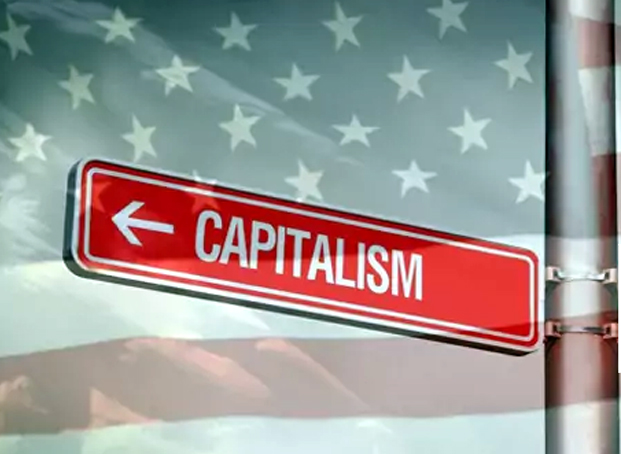By Nantoo Banerjee
Unbelievable but true. The government of the United States of America, supposedly the vanguard of modern capitalism, is fighting with its back to the wall to prevent a private corporate takeover of a publicly-listed US firm by a widely-held Japanese company. Both the outgoing US President Joe Biden of the Democratic Party and his soon-to-be Republican successor, Donald Trump, have vowed to stall the Nippon Steel takeover of the US Steel Corporation on the grounds that US Steel is an iconic American company!
Interestingly, Japan, once the world’s second largest economy, is believed to be the closest diplomatic and strategic ally of the US. Last week, a powerful US government panel failed to reach consensus on the possible national security risks concerning a nearly $15-billion Nippon Steel deal to purchase US Steel, leaving the decision to President Joe Biden, who opposes the deal. Earlier, President-elect Donald Trump also said he would block the proposed acquisition of US Steel by Nippon Steel. Trump said: “We will revive US Steel and make it great again.”
This is absolutely unusual in a free-market economic system. Also, it is not for the first time that a high-profile US firm is being taken over by an overseas corporate entity. Giant US firms such as Chrysler, Firestone, Amaco, Monsanto, Allergan and AirTouch Communications – all symbols of US corporate strength and innovation – were also taken over by overseas entities and competitors. They changed hands for huge sums, several times more than what Nippon Steel paid to take control of US Steel. Chrysler was taken over by a Dutch conglomerate, Stellantis NV, Firestone by Japanese Bridgestone, Amaco by the UK’s BP, AirTouch by British Vodafone, Monsanto by Germany’s Bayer AG, and Allergan by Ireland’s Actavis. The Irish deal was said to be the most expensive, for $70.5 billion.
Capitol Hill had never interfered with foreign corporate acquisitions of US companies. It is not clear how the federal government wants to prevent the takeover of US Steel. Could it nationalise the company under extreme circumstances? Going by the past record, the US government had nationalised several companies to ensure the continued provision of essential services such as railroads — the last of them being Amtrak in 1971 to relieve American railroads of their legal obligation to provide intercity passenger rail service.
The US government also runs several state-owned enterprises, including the US Postal Service, Fannie Mae, Freddie Mac, the National Aeronautics and Space Administration (NASA), and the US Nuclear Regulatory Commission. But these were not mass manufacturing enterprises such as US Steel, once the world’s largest steelmaker. US Steel was also the world’s first billion-dollar corporation.
In its first year, US Steel accounted for 67 percent of the country’s steel production. Its logo was the most impressive, powerfully projecting the country’s strength and its currency. The company supplied steel for many famous structures, including the San Francisco-Oakland Bay Bridge, the US Steel Tower in Pittsburgh, and the United Nations Building in New York City. However, over the years, it gradually lost the market share to the country’s more innovative ferrous metal manufacturers like Bethlehem Steel.
The world’s largest economy is no longer at the forefront of manufacturing steel, coal, power and cement. Other parts of the world are far ahead of the US. In fact, China is now the world’s top producer in each of the four areas. China accounts for 54 percent of the world steel production. India comes a poor second, followed by Japan and the US. Bethlehem Steel went bankrupt in 2001. Subsequently, it was acquired by the Laxmi Mittal group in 2003. The latter took over the International Steel Group in 2004 and brought Arcelor under its grip in 2006 for $26.9 billion.
The Luxembourg-based ArcelorMittal is the world’s second largest steel producer after the China Baowu Group, which alone produced over 130 million tonnes of steel in 2023. Nippon Steel, Tata Steel and JSW Steel are among the world’s top 10 steel producers. Today, Sajjan Jindal-led JSW Steel is the second largest US steel company by market cap, after Nucor. Charlotte-headquartered Nucor is the largest US steelmaker, producing over 20 million tons of steel, annually. Other major US steel manufacturers are: Tenaris, Cleveland-Cliffs, Carpenter Technology, Commercial Metals Company, Steel Dynamics, and US Steel.
In fact, it makes no sense on the part of the US government – Democrat or Republican – to prevent Nippon Steel Corporation, Japan’s largest steelmaker and the world’s fourth largest, from taking over US Steel for a sentimental reason. On the contrary, technologically advanced Nippon Steel can bring fresh life to US Steel, making it one of the best steelmakers of the country. In 2023, the total raw steel production by all US mills was only 89.7 million tons with an average capacity utilisation of around 75 percent.
In fiscal 2023-24, Nippon Steel Corporation’s crude steel production alone was around 40.5 million tons. The US continues to be a major steel importer despite a high import tariff imposed to protect the domestic steel industry. In 2023, the United States imported 25.6 million metric tons of steel, which was an 8.7 percent decrease from the previous year. An official bid to force Nippon Steel out of US Steel, after the conclusion of the sale deal, will set a unique example of government intervention in open market corporate transactions on the ground of “national interest.”
It may be recognised that an increasing number of so-called capitalist countries such as France, Germany, Italy and Spain are practicing a form of capitalism that combines free markets and government intervention, called mixed economies. It appears that the US is also moving towards that direction. (IPA Service)


